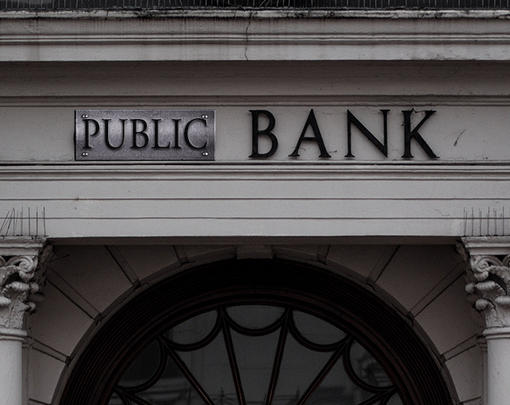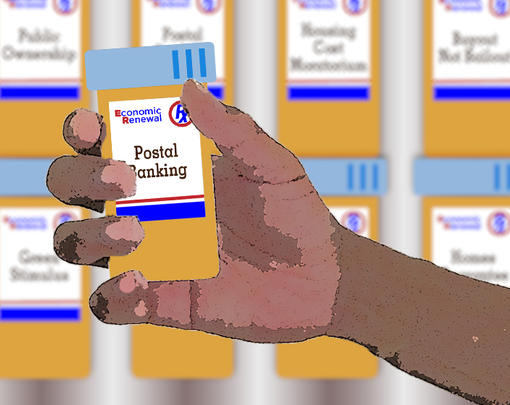The Next System Project’s Adam Simpson sat down with renowned economist and economic historian Michael Hudson to discuss economic deceptions old and new for a podcast interview. Michael Hudson is Distinguished Research Professor of Economics at the University of Missouri, Kansas City and a prolific writer about the global economy and predatory financial practices. Among his latest books are Killing the Host: How Financial Parasites and Debt Bondage Destroy the Global Economy and its follow-up J is for Junk Economics: A Guide to Reality in an Age of Deception.
What follows are highlights from the interview. The podcast is below, and the full transcript is available at CounterPunch.
What is a heterodox economist?
“Heterodox” is a recent term coined mainly by the University of Missouri at Kansas City where I’m a professor along with Randall Wray and Stephanie Kelton and other members of the Modern Monetary Theory (MMT) school of thought. The term simply means not mainstream. We’re basically classical economists. We do what classical economics used to do, which is to distinguish between earned and unearned income, and between productive versus unproductive labor. And we see that banks create credit – which governments could create just as easily, along more socially and economically productive lines. We see budget deficits as providing the economy with money to fuel growth. That’s why Stephanie calls us “Deficit Owls” instead of the Republican and Clintonite Deficit Hawks who prefer commercial banks to provide the credit that the economy needs.
We look at how the economy, goods and services and labor, exists within the context of wealth and assets and debt. And this is how people looked at the economy before there was anti-classical reaction in the 1890’s. We look at how land ownership, banks and credit shape the framework within which the economy operates – at interest.
Radical Minneapolis Roots
I was born in Minneapolis. That was probably the only Trotskyist city in the world – the center of Trotskyism in the 1930’s. It was the only city where becoming a Trotskyist was a career advancement prospect. My father, Carlos Hudson, had graduated in 1929 from the University of Minnesota Business School with an MBA degree and wanted to become a millionaire. I think he wanted to go into mining in Latin America. Then the Depression came and he decided that capitalism wasn’t fair. He joined the Trotskyists, the Socialist Workers Party. And when Trotsky was exiled to Mexico, most of his bodyguards and co-workers came from Minneapolis.
That was really the center of organizing the Teamsters Union, highlighted by the great Minneapolis general strike in 1934. Charles Rumford Walker wrote American City about Minneapolis. There were Scandinavian radicals. Jewish radicals and others. The main opponents were the Stalinists. They sought to stop the Trotskyists from organizing the teamsters and other labor unions.
The upshot was the Smith Act trials of 1941. Most people think of the Smith Act as being used against the Communists after World War II, but actually it was first used against the Trotskyists. The Communist Party urged the death penalty for the Smith Act, ostensibly for advocating the overthrow of the government by force and violence. The criterion for that was whether people had books by Lenin and Marx in their homes. So the act was called a “gag act.”
The Attorney General under Roosevelt, Francis Biddle, wrote in his autobiography that the one thing he was ashamed about was prosecuting the Trotskyists, because by no stretch of the imagination were they a threat to the government. As a matter of fact the Farmer-Labor governor of Minnesota, Floyd B. Olsen, called in the national guard after the police force broke up the marches and demonstrations by shooting strikers. The police were the ones using force and violence; the strikers were not. Olsen said that he hoped capitalism would go right to hell.
What does mainstream economics often observe?
I have a model of the economy, both in J is for Junk Economics and Killing the Host. If you’re looking at how wealth is accumulated, people think of it in the way textbooks describe: as earning income and saving it up to get rich. That’s all most wage earners can do. But that’s not how it happens at the top of the pyramid. Most wealth takes the form of capital gains. They’re inflated on credit, so it’s really asset price inflation that’s financed by debt leverage. Most of the gains end up being paid out as interest, so the bankers – that is, the bank owners and bondholders – end up with most of the rise in wealth.
But to look at academic economics, it’s as if the whole economy is about making things – as if manufacturing hires labor to produce goods and services that everybody gets rich from, by being more productive. Savings are supposed to finance growth, increasing stock prices because profits go up from employing more labor to produce more goods and services.
But that’s not really what happens. Most money is made by financial engineering, not by industrial engineering. It’s made by what the classical economists called unearned income. 80% of bank loans are to the real estate sector. The more loans banks make to the real estate sector, the more their credit bids up real estate prices. People think that real estate goes up because population growth and people getting richer to afford paying more. But that’s not really why housing prices are rising. The value of a home or commercial office building is worth whatever a bank is willing to lend against it. As banks loosen their lending standards, they lend more and more. The result is debt pyramiding – and this is true not only for real estate, but for the economy as a whole.
People talk about the economists who “forecast the crisis happening in 2008.” The Financial Times cited me as one of the 12 economists, as if there were only 12 people in the world who knew that there was going to be a crisis (and only 3 with actual economic models, including my own). But the fact is, everybody on Wall Street knew. All the bankers knew. If you look at any of the newspapers from that time, they talked about “junk mortgages.” They talked about NINJA borrowers: No Income, No Job, No Assets. The FBI warned in 2004 that they saw the largest wave of financial fraud and banking fraud that ever occurred. So everybody knew it was fraudulent. But they thought they could get out in time.
Everybody knew the system had to end. But you never know just when it will end. Usually the trigger is discovery of a big fraud, or a bank making a bad loan or bet. In 2006 I published a lead article in Harper’s forecasting this, showing a chart on why the Bubble Economy couldn’t go on for more than a year. And it didn’t. It ended just as everybody thought it would. If you look at the growth of debt compared to the growth in the ability to pay it, you see that many economies already have passed the point of intersection. At the point where debts can no longer be paid, you have a break in the chain of payments. That’s what causes a crash. In the 19th century nobody talked about business cycles, but about sudden crashes and slow recoveries.
Think of the circular flow between producers and consumers. If wage earners have to spend more to obtain housing, or to pay a bank loan or education loans, they have less to spend on buying the goods and services they produce. They’re not paying to the producers of goods and services. They’re paying to the bankers or the real estate sector – the property sector. When you said the FIRE sector, that’s Finance, Insurance and Real Estate. For many years, national income economists and statisticians couldn’t even separate which income belonged to which, because they’re so symbiotic and interwoven.
This is not really part of the production economy or what people call the “real economy.” But the FIRE sector’s rent and interest are the first things you have to pay out of your paycheck. That’s more real – in the sense of being most pressing – than goods and services. So when a family gets its paycheck, the taxes and the bank debts credit card debt they owe, and either their rent or their mortgage payment, often are automatically taken out of their check or bank account right off the top. Out of what remains, the average American wage earner only has maybe 25 to 30% of their income available to actually spend on the goods and services they produce.
So there’s a diversion of this income to pay the FIRE sector – a sector that classical economists hoped to minimize. They wanted to get rid of the rentier class. They wanted to nationalize the land, or at least tax away its rent. They wanted the government to be the public creditor, or at least for banks to make productive loans, not finance corporate share buybacks, corporate takeovers, or lend just to inflate real estate prices and make home buyers take on higher and higher debt levels in order to obtain housing.
The economy’s been turned inside out, yet people don’t really realize it because the vocabulary they use has been turned into a kind of euphemism. You said Orwellian and it’s really Doublethink, using words to mean the opposite of what they used to mean. I wrote J is for Junk Economics largely to discuss misleading terminology. If you look underneath the vocabulary, you realize what’s really happening instead of accepting euphemisms like “earnings” instead of unearned rent. You can build up a different, less unrealistic picture of the economy.
What archaeology tells us about modern financial fraud?
Every ruler of Hammurabi’s Babylonian dynasty, like the Sumerian rulers before them, started their rule by proclaiming a clean slate to cancel the debts. In Babylonian times this was called ‘andurarum.’ It’s a cognate to the Hebrew term deror, the word for the Jubilee Year. The new ruler would cancel the debts, free the debt bondservants and return anyone put in bondage to the creditor – including the house slave – to the original family owners. Also, they would return the self-support land that had been forfeited to creditors. But rulers wouldn’t return town houses, which were part of the surplus. They didn’t cancel commercial debts, which were silver debts. But they would cancel the barley debts to enable people to survive.
After the 7th century, you didn’t have that anymore. Solon of Athens banned debt bondage in 594 BC. But by the 3rd century BC, you had the kings of Sparta—Aegis and Cleomenes, followed by Nabis—canceling the debts. The oligarchs called on Rome to fight against Sparta. They overthrew Sparta. From then on, you had the Roman oligarchy become the first society not to cancel personal debts. That meant that gradually, you had debtors reduced to permanent bondage, not merely temporary not merely 3 years as in the laws of Hammurabi, or 50 years in the periodic Jubilee Year in Israel. You had permanent bondage and economic polarization. That’s the same kind of debt peonage that you are seeing develop in today’s economies.
Today, families entering the labor force are going to have to spend all their life working off the debt they need to take on in order to get an education to get a job, as well the debt they need to buy a car to drive to the job, and the mortgage debt for the house they need to live in to avoid rents going up and up. They have to spend all their life merely to pay their creditors, not to live better with more goods and services. Unlike serfdom, today’s workers can live wherever they want. But wherever they live, they have to produce value not only for their employers but also for the bankers.
These bankers (and bondholders) are the main exploiters today. So finance capitalism is overwhelming industrial capitalism. Instead of industrial capitalism evolving into socialism as was expected, it is retrogressing back to neo-serfdom and neo-feudalism. This is mainly because of the inability to bring debt within the industrial capitalist system to evolve into a socialist economy. That is what neoliberalism is sponsoring by financialization and privatization: the inability to make debt productive.
The economic textbooks […] depict a parallel universe backed by Orwellian euphemistic economics to make people think that somehow they’re going to get rich by borrowing money to buy a home that may rise further in price. The dream is to be a Donald Trump in miniature, to make money on the home as a real estate investment. Make money in the stock market by turning their money over to financial managers like Citibank, Goldman Sachs, or other companies that have paid tens of billions in fines for financial fraud. Now you have Donald Trump trying to get rid of Elizabeth Warren’s Consumer Financial Protection Bureau. The Republican argument is that just like we have to give people the right to buy bad food, junk sodas, and McDonald’s burgers, they have to have the right to buy financial products from Wall Street sharpies that are going to cheat them.
That’s now called a free market. But it’s not the kind of free market that Adam Smith and the classical “free market” economists had in mind. The rentier sector’s lobbyists have taken over peoples’ mind. This is what Killing the Host is all about. It’s the basic intellectual dynamic of parasitism. In nature, parasites don’t simply attach themselves to a host and suck out blood, or take the surplus in an economy. In order to do that, they have to numb the host. They need an anesthetic so that the host doesn’t realize it’s being bitten. Then, biological parasites in nature have an enzyme that they use to take over the brain. The brain of the host is tricked into thinking that the parasite is a part of its body, to be protected. That is what the parasitic sector, the FIRE sector, has done in modern economies. It makes Wall Street the planning center, not the elected government. That’s how the rentiers have taken over the economy.
But of course, the aims of financial planners are not the same as those of government planners. The financial aim is to strip assets, to make money in the short term, not to plan for the long term as governments are supposed to do. Taking long-term survival and sustainability of the economy into consideration is not done anymore. We’re entered the asset-stripping phase of finance capitalism.
Freedom is slavery: On Hayek and Orwell
Hayek turned classical economics on its head. Adam Smith, John Stuart Mill, and the other classical economists who are supposed to be icons of the free market meant a market free from land rent, monopoly rent, and financial interest. But for Hayek, a free market meant one free for these rentiers. Free for landlords, bankers and monopolists. That’s why his group, the Von Misians in Austria, spent their time fighting against public spending and the “threat” of socialism. He said that socialism leads to fascism. But actually it’s his Chicago school that does this. It’s the “free market” Chicago Boys who led to fascism in Chile by overthrowing the government.
So Hayek called freedom fascism, and he called fascism freedom. The first thing that the Chicago boys did in Chile was to close every economics department. Because they realized that you can’t have a Hayek-style free market unless you’re willing to kill everybody who disagrees with you. They had to kill labor leaders and tens of thousands of intellectuals. They closed every economics department in the country except for the Catholic University where they taught. There was mass murder. If you’re not wiling to kill everybody who has a different idea than yourself, you cannot have Frederick Hayek’s free market. You cannot have Alan Greenspan or the Chicago School, you cannot have the economic freedom that is freedom for the rentiers and the FIRE sector to reduce the rest of the economy to serfdom.
Hayek’s saying that the way to create serfdom is to make people think that freedom is serfdom. So we’re back with Orwell: Freedom is slavery, war is peace. That is the Orwellian economics now taught by mainstream orthodoxy. You no longer have the history of economic thought being taught, as it was 50 years ago when I was getting my PhD. It’s been stripped out of the curriculum. If people really read what Adam Smith said after he traveled to France and met with the Physiocrats – and was convinced that there should be a land tax and that economies shouldn’t have free riders – you realize that what he said is the exact opposite of today’s ostensible free-market ideology. John Stuart Mill defined rent as what landlords make “in their sleep,” without working. These classical economists were on the road to socialism. Only half-way there, but on the road to it.
Trump is part of Obama’s Legacy
What’s new is that Trump said the emperor has no clothes. He said, “You think you’re getting rich under Obama? You haven’t got rich.” So when Hillary told her supporters to look and see how much better off you are today than when Obama was elected, she made herself look blind, referring only to the One Percent. All the growth in the American economy from 2008 to 2016 accrued only to 5% of the population – the richest. 95% of the population were worse off. Trump saw the obvious – which you would think that any member of the 95% would have seen. When Hillary tried to convince people they were better off, Trump simply said, “Let’s look at reality: You’re worse off.”
Voters thought that if he could see that they’re worse off, he must know how to cure it – instead of knowing how to make them even more worse off. People wanted prosperity and Trump said NATO’s obsolete. There’s no reason for us to maintain it—Russia’s not going to invade Europe. Why should they invade? There’s no way any European country is going to militarily invade another.
The new mode of warfare isn’t military anymore, it’s financial. Russia and China realize that the United States is dissipating its ability to conquer countries financially by spending its economic surplus on military and the FIRE sector. Trump realized that as a real estate developer, he’d been fighting banks all his life. There’s no love there for the banks.
So the neocons are out to get him. They’re saying it is treason to want peace instead of war. We need an enemy sufficient enough to justify giving all the surplus to the upper 5% and spending it on the military. If you don’t advocate doing that, you’re a traitor – to their fortunes. So they’re out to get rid of him.
Environmental ruin is irrelevant to Wall Street balance sheets
Suppose you organize a public utility to be run on atomic power. You organize that in a private-sector way, designed to make money for the electric companies that invest in atomic power by borrowing from the banks and building interest charges into the rates they charge. If you’re going to make atomic power able to create a profit for stockholders and interest for the financiers, you have to cut costs. The easiest costs to cut are those of environmental protection, because they’re not enforced or even well written.
I knew many of the physicists who designed the atom bomb at the Manhattan Project. They felt pretty bad about having worked on the bomb. Many of them had gone into physics because they found it beautiful, and they found atomic power beautiful. They wanted to show that it could do something good and have a practical peacetime application. So after Hiroshima and Nagasaki they tried to turn their talents to developing nuclear power as a clean power. The problem was that the cost of doing this was so large that it couldn’t be done if you built in brakes. It’s like building cars without brakes. The cars would cost too much.
They couldn’t make atomic power provide energy at a competitive price, given the cost of disposing of the depleted uranium. You had a huge problem of disposing of uranium. You’ had to build atomic power plants without safeguards. Like Fukushima. Tepco, the Japanese electric utility owner, know it would cost a bit more money to bury the backup diesel generators below ground in case of a tsunami. Despite warnings, they chose to save money by making it above ground and simply hoped there would not be an earthquake until they’d left the company and collected their salaries and bonuses. They probably shouldn’t have built it near a earthquake fault. Once in a while there’s going to be a tsunami. But they were into making money in the short term, because that’s what the corporate financial mindset is. They built Fukushima deliberately unsafe, thinking that future generations would pay, not them.
When consultants and engineers told Tepco that the plant would be unsafe, the managers overruled them. They’re in business to make money for their stockholders. Milton Friedman said that the obligation of corporate managers is to make money for the stockholders, not society. So for them, Fukushima was a success. They made money all these years without having to spend the extra money it would have cost to build a plant and its backup generators safely.
Such external economic effects often are larger than the corporate balance sheet profits. But they don’t appear on the private sector’s balance sheets. So companies cut back to make more money, and compete with other companies to undersell them by not building safeguards. You can go right down the line, from the coal industry to all other polluters with working conditions that endanger workers. Their corporate balance sheets do not include the cost of environmental pollution.
There’s a fight to exclude environmental considerations from national balance sheets. The theory is, if you don’t see the damage that’s being done, you won’t act politically to stop the damage. If it’s invisible, it won’t be regulated, and it also won’t be taxed.
A Public Alternative
The ethic would have been public banking, with a different lending philosophy from that of commercial banks. It would lend at much less expensive rates. It would not manage pension funds and savings by lending to corporate raters to end up downsizing and outsourcing the labor force, but to companies that actually want to expand employment. That is why you need a public option in banking.
Instead of withdrawing banking offices from low-income redlined areas, you could use post offices as public banks to provide basic check-cashing services, “vanilla” banking accounts, and money transfer services at costs to areas that now are forced to engage in pay-day loans. Instead of these rip-offs, you would have an alternative. The payday lenders are funded by the big banks like Citibank and Chase-JP Morgan. It doesn’t have to be this way. You could have loans to finance economic growth, not for asset stripping.
There’s no problem with giving more people enough income to live. Even archaic societies operated on the mutual-aid principle. There’s a lot of pressure for the Federal Reserve to create a trillion dollars by giving everybody an extra $500. Why are they willing to do that? Because most people would use the $500 to pay the banks – so the banks wouldn’t have to lose money and default as a result of their reckless and unproductive lending. The problem’s not only income, but what people have to spend it on. Paine didn’t talk about universal income, he talked about everybody should have the right to a place to live, a means of their own self-support. That’s independent from income. Once you economize and financialize it, you put in a distortion.
You don’t want to give people income to buy what really should be public goods and services outside of the market. You don’t want to give people more income simply to pay monopolistic public utilities for extortionate charges for water, sewer, electricity, cable TV and education. These are things that should be removed from the marketplace, not giving people the income to buy overpriced and monopolized real estate and infrastructure services that should be public in the first place.
About one third of the GDP is monopoly rent. One third – which otherwise could take the form of rising living standards. A century ago there were futurists who were writing about the future, Simon Patten and others, they all thought we would have an economy of leisure by now. If you told anyone a century ago about the rise in productivity, they’d think that people would only have to work one or two days a week. There would be a lot of leisure time. But the opposite is happening. People are being squeezed, they’re having to work overtime. They’re struggling just to break even. They’re one paycheck away from missing a utility payment. They can’t afford to campaign for better working conditions, much less go on strike.
So if you think of the economy in terms of who gets the surplus and what they do with it, you can develop a logic that leads you to invest the surplus in ways that increase people’s standard of living and well-being. But post-classical economics says that there’s no such thing as a surplus. A surplus implies exploitation, and there’s no such thing as exploitation – as if we’re all working together. That’s not reality.




